Popular Cities in United Arab Emirates for Minimally Invasive Cabg are:
Listing popular specialists:
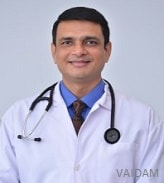
Consultant, 12 years of experience

Cardiac transplant surgery, Left ventricular assist devices, Extra corporeal life support (ECMO), Keyhole surgery, Off pump coronary bypass surgery, Complex Aortic Surgeries
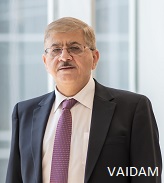
Consultant, 25 years of experience

Hypertensive Heart Disease
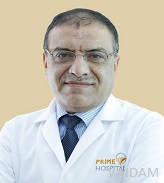
Consultant, 20 years of experience

48-24 hours blood pressure monitoring 48-24 hour Holter monitoring Exercise ESC Transthoracic echocardiography Coronary angiography and stenting Right and left heart catheteriCoronary angiography
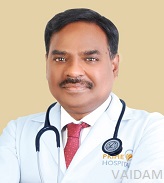
Consultant, 20 years of experience

Transthoracic echocardiography Transesophageal Echocardiography Stress Echocardiography ECG Holter Monitoring, Ambulatory blood pressure monitoring Interventional Cardiac Procedures including Cardiac Catherization, Angiography & angioplasty/stenting Trans radial complex coronary interventions
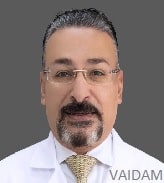
Dr. Walid Hassan Ibrahim Shaker
Consultant, 25 years of experience

Coronary By-pass Valve Replacement Valve Repair Surgeries
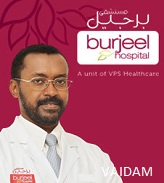
Dr. Tarig Ali Mohamed Elhassan
Consultant, 20 years of experience

coronary artery diseases and complexities valvular heart diseases surgery and management of congenital heart diseases

Consultant, 27 years of experience

Radial coronary intervention Chronic Total Occlusion Diffuse & Multivessel stenting Primary angioplasty IVUS & Rotablator Complex coronary intervention Biventricular pacing Endovascular stenting for aortic aneurysm.
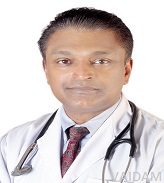
Visiting Consultant, 38 years of experience

MIS heart bypass Paediatric cardiac surgery Congenital heart surgery Heart valve surgery MIDCAB surgery Coronary angioplasty
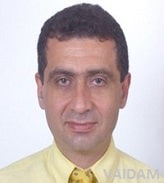
Senior Consultant, 32 years of experience

Tumor/Ca lung surgery. Chest wall and trauma surgery. Mediastinal surgery and thymus surgery. Vascular and endovascular surgery. Phlebology/venous surgery and sclerosing.
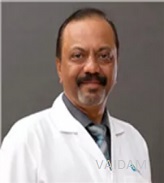
Dr. Dinesh Ramagowdanpura Sadasivan
Principal Consultant, 21 years of experience

Valve Surgeries Redo-Sternotomy Thoracotomy
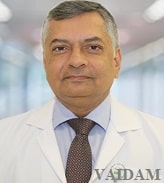
Senior Consultant, 23 years of experience

Total Arterial CABG (Beating Heart) Extensive experience in Aortic Root Operations, Open and Endovascular surgery on the Aorta and Hybrid procedures. Minimally Invasive Cardiac Surgery High-risk procedures like Valve-CABG, Acute Ischemic Mitral Regurgitation repairs,and post-Renal Transplant CABGs. Complex valve surgeries including single and double valve replacement or repairs. Redo- surgery for Coronaries and Valves. Surgery for atrial fibrillation. Aortic surgery including aneurysm and dissection repairs.
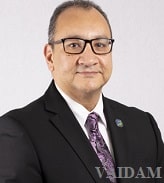
Senior Consultant, 25 years of experience

Adult Cardiac Surgery Coronary Artery Bypass Grafting (ON pump and off-pump) Arterial Revascularization Aortic root surgery Aortic Aneurysm Valve surgery and repair Minimal Invasive Cardiac Surgery
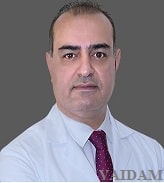
Senior Consultant, 20 years of experience

Minimally invasive saphenous vein harvesting, Valvular surgery, Mitral valve repair, Thoracic aortic disease.
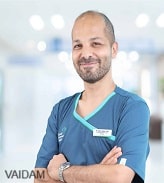
Senior Consultant, 14 years of experience

Carotid surgery, Thoracic and abdominal aortic endovascular repair, Endovascular (anterograde and retrograde) peripheral arterial revascularization, Open peripheral arterial revascularization, Lung transplantation, Open thoracotomy
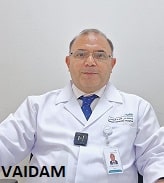
Consultant, 20 years of experience

Minimally invasive cardiac surgeries, Robotic assisted surgery, Treatment of cardiology condition
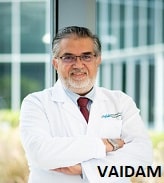
Consultant, 30 years of experience

Minimally invasive cardiac surgery including coronary arteries & valves, Mitral valve repair, Aortic surgery including aortic dissection and aneurysm, Left ventricle remodeling & reconstruction
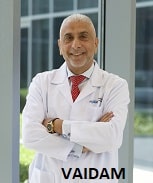
Senior Consultant, 32 years of experience

Minimally-invasive VATS surgery, Oncology thoracic surgery (Lung and Mediastinal Tumor), Diaphragm repair surgery, Valve surgery (Aortic, Mitral, Tricuspid), Aortic Root surgery
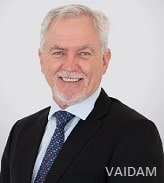
Consultant, 24 years of experience

Coronary Artery Bypass Grafts: bilateral Internal Mammary Artery T and Y-grafts Minimally Invasive Surgery Mitral, Tricuspid and Aortic Valve Surgery Surgery on the Thoracic Aorta Surgery for the treatment of Atrial Fibrillation
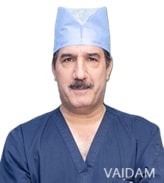
Consultant, 29 years of experience

Cardiovascular Surgery, Coronary Surgery, Heart Valve Surgery, Aortic Aneurysm
Our Services for Minimally Invasive Cabg in United Arab Emirates
Transparent - Professional - Without Hassles
The most important is that the need for bypass surgery arises as to the result of a preventable condition, namely, coronary artery disease.
If you take care of yourself, eat well, exercise and take heart-healthy supplements, the chances are good that you may be able to avoid a bypass.
Bypass surgery is generally considered the better option in cases where the patient's arteries are blocked in multiple areas or where their left main coronary artery is narrowed.
Sometimes patients will prefer the less invasive angioplasty as they would like to resume work sooner.
Minimally invasive surgery also called keyhole surgery.
Possible risks of coronary artery bypass graft surgery (CABG) include:
Bleeding during or after the surgery.
Blood clots that can cause heart attack, stroke, or lung problems.
Infection at the incision site.
Pneumonia.
Breathing problems.
Pancreatitis.
Kidney failure.
Abnormal heart rhythm
CABG in today's world has become a very routine procedure. Most doctors we work with operate about 20-25 such patients every month. The success rate of CABG surgery is easily more than 95%.
That is absolutely right. If your surgeon felt, he will not be able to achieve the desired results in minimally invasive surgery, he will not offer it in the first place.
A series of small incisions are made between your ribs on the left side of your chest, directly over the artery to be bypassed. The incisions usually are about 3 inches long.
Taking veins from the legs has traditionally been done but with advanced techniques, doctors do it endoscopically and hence NO more cuts other than chest incision.
Coronary artery disease is generally an old age problem and hence people of up to 70-75 years of age can safely undergo the procedure.
In most cases, minimally invasive surgery can be offered, but if your surgeon is insisting on open surgery, there have to be medical reasons for it.
You should clarify all such apprehensions during your clinical evaluation with the treating surgeon.
Not everyone can be a candidate for minimally invasive CABG surgery, the ideal candidate for this surgery are only those who have one to three vessels that needed to be bypasses and they are at high risks for undergoing traditional CABG surgery.
CABG works to improve the blood flow to the heart and this procedure is said to be invasive because heart bypass creates a new route called as bypass for blood and oxygen to reach your heart, it can be done without stopping the heart there will be no need for you to kept on a heart lung machine during the procedure.
You will be recommended to undergo heart bypass surgery if you have blockage in your one or two coronary artery mostly in the front of your heart. When one or more coronary artery become totally or partially blocked and your heart doesn’t get enough blood then it can cause chest pain.
Your doctor can only tell you whether this surgery is good choice for you or not it depends on your health, the condition of your coronary artery disease, the number of bypass needed. There are lots of other pros and cons of the surgery the doctor will make the right decision about which procedure is the best suitable for you.
There is no upper age limit for the surgery, the risk of the procedure are higher in those patients who are older than 65 years.
You'll usually need to stay in the hospital for around 7 days after having a coronary artery bypass graft (CABG) so medical staff can closely monitor your recovery. ICU for 1-2 days.
During this time, you may be attached to various tubes, drips, and drains that provide you with fluids and allow blood and urine to drain away.
Those who have had a heart valve repair or replacement surgery or coronary artery bypass grafts (open heart surgery) can usually fly after 4 weeks.
During CABG, a surgical team will take one or more blood vessels from another part of your body and create newer blood vessels to take blood into the heart.
It will generally takes three to five hours to do the surgery.
Before 2 weeks of the surgery stop taking the drugs which can increase bleeding during the surgery. Don’t eat or drink anything after midnight before your surgery , you can rinse your mouth with water but do not swallow it.
In heart bypass surgery the surgeon will make a 3 to 5 inch incision in the left part of your chest between your ribs to reach your heart. After that the muscles in the area will be pushed apart and the coastal cartilage will be removed, then the surgeon will then find and prepare an artery on your chest wall (internal mammary artery) to attach to your coronary artery that is blocked. At last the surgeon will use sutures for connecting the prepared chest artery to the blocked part of coronary artery. A tube will be placed in your chest for draining fluid.
Occasional drinking post-CABG is acceptable. It is important for the patient to maintain a healthy lifestyle.
Since coronary artery disease is a lifestyle disease and can very well be managed by a change in lifestyle post-surgery.
Recovering from a coronary artery bypass graft procedure takes time and everyone recovers at slightly different speeds.
Generally, you should be able to sit in a chair after 1 day, walk after 3 days, and walk up and downstairs after 5 or 6 days. Most people make a full recovery within 12 weeks of the operation.
The doctor will advise you to run investigations after 6 months, 1 year and share the reports electronically to review the progress and condition of the heart.
Generally, you should be able to sit in a chair after 1 day, walk after 3 days, and walk up and downstairs after 5 or 6 days. Most people make a full recovery within 12 weeks of the operation.
If you can walk normally at your usual pace, you can also climb two flights of stairs at your usual pace
Resume sexual activities in six-eight weeks
The surgeon must find a balance between preventing clots and having a patient bleed too much during surgery.
For some patients who routinely take a blood thinner prior to surgery, the dose of blood thinners that are typically taken each day is stopped at least 24 hours, and up to a week, prior to the surgery.
You will be given a discharge summary at the time of discharge from the hospital. This document has all relevant details for your local doctor to follow you up post-surgery.
But your local doctor can also get in touch with treating surgeons through us. Talk to your case manager and we will be happy to facilitate.
Smoking is absolutely prohibited post-surgery. Occasional and moderate drinking is generally allowed.
The tube will be removed within a day or two after the surgery.
Some of the risks of the surgery includes blood loss, blood clots, low grade fever, pain at the site of cut, infection of lungs, temporary or permanent brain injury, stroke or heart attack.
You will be discharged after 2-3 days of the surgery and you can start doing your normal activities after 2-3 weeks of the surgery.
It takes time to completely recover from the surgery, it may take 3 to 6 months to recover fully. You have to follow some precautions such as don’t smoke, eat a healthy and balanced diet, keep control on your blood sugar and high blood pressure.
You should not do any activity or any exercise which can cause pain across your chest, you should immediately stop doing any activity if you feel shortness of breath, dizziness or any pain in your chest, don’t involve in any activity which can cause pulling or pain in your chest.
Some precautions which you have to take after a CABG procedure are heavy physical activities, lying down in supine position, restrict salt consumption and chest physiotherapy.
Your doctor might order a number of tests before your CABG procedure. These may include blood tests, EKG, echocardiogram, chest x ray, cardiac catheterization, and angiography.






NABH Certified Healthcare Discovery Platform
Vaidam is NABH certified healthcare discovery platform that will connect you to top-notch medical experts, hospitals, wellness options, and trusted travel partners to help identify and make the right healthcare choices.

Researched & Personalized Treatment Plan - Under One Roof
You can search for the best hospitals, read about them, view photographs of the facilities at the hospitals and the places at which the hospitals are located, and check the cost of treatment.

Quality Treatment Within Your Budget
As soon as you post an enquiry, the patient relation team will collect details from you, share them with the doctors and hospitals on Vaidam's panel, and get a personalized treatment plan. We research to get quality treatment within your budget.

Treatment to Travel
Vaidam concierge assists patients, to get medical Visa, the best airline fares and arrangements for your stay. Our concierge also helps you with daily travel, language, and food concerns. Vaidam does everything to be your perfect host. All of Vaidam’s services are free of cost to patients.

International Reach
Vaidam Health has network in 15+ countries, which includes India, Turkey, UAE, Germany, South Korea, Thailand, Malaysia, Spain.
Note: Vaidam Health does not provide medical advice, diagnosis or treatment. The services and information offered on www.vaidam.com are intended solely for informational purposes and cannot replace the professional consultation or treatment by a physician. Vaidam Health discourages copying, cloning of its webpages and its content and it will follow the legal procedures to protect its intellectual property